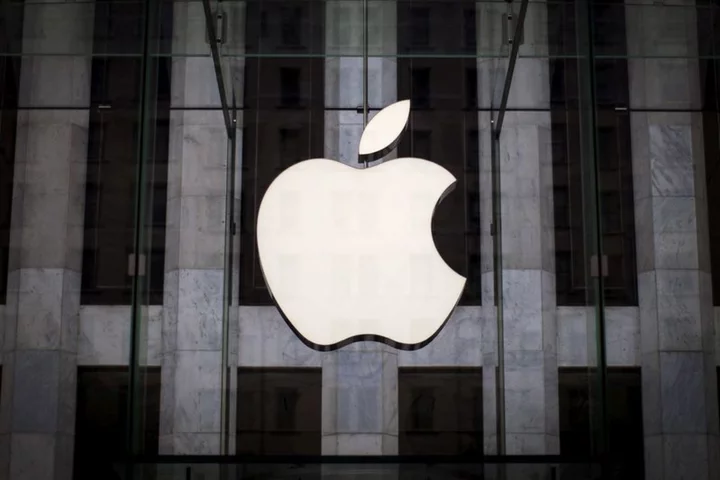LONDON (AP) — British voters face a crowded field of 13 candidates in an upcoming special election for a Parliament seat. One, independent Andrew Gray, used artificial intelligence to come up with campaign promises that he says reflect what residents want.
Gray, who says he has no policies of his own, crowdsourced constituents' sentiments and used machine learning to come up with his political manifesto. He calls the technology a faster and fairer way for politicians to widely reflect views of the people they represent.
“We can interact with our constituents in a whole new way,” Gray said. “It doesn’t change necessarily the role of the representative. It just means that we kind of know what’s going on much more quickly and we can represent them more fairly.”
Conservative lawmaker Nigel Adams' abrupt resignation triggered Thursday's parliamentary by-election in Selby and Ainsty, a mixed urban-rural district in northern England. It's expected to be a hotly contested battle between the ruling Conservatives, the opposition Labour party and the rising Liberal Democrats. A host of smaller parties and independents also are running.
Gray's policies, developed with the use of Pol.is software, include a call for higher taxes, a radical overhaul of the state-funded National Health Service and closer ties with the European Union, which Britain left three and half years ago.
Pol.is, developed by a Seattle group a decade ago, has notably been used in Taiwan to find policy solutions to deadlocked issues.
Gray says Pol.is “isn’t ChatGPT,” one of the new generative AI systems that has dazzled users with the ability to produce text, images and video mimicking human work. “It’s just slightly more sophisticated polling than what is already happening.”
“The A.I. isn’t that clever that it can spit out exactly what the policies are,” he says, and still needs “human moderation and ... analysis of what would be a sensible policy position.”
Gray uses Pol.is to canvas residents on local issues through his website. People can comment on a topic, such as internet speeds. Other users can click “agree,” “disagree” or “pass/unsure.” They can't respond directly but can post their own comments.
As the conversation builds, Pol.is uses machine learning in real time to group the statements, mapping them out to show where there are gaps between viewpoints as well as areas of agreement, which ideally can encourage consensus.
With the election expected to be hard-fought between the main U.K. parties, Gray is realistic about his chances. But if elected, Gray plans to use the technology to take his district’s temperature “on a weekly basis." If he loses, he'll share the data with whoever wins.
More than 7,500 votes have been cast on Gray’s platform, though he acknowledges the actual number of voters is likely far smaller because each one typically votes “tens of times” on multiple statements.
Keegan McBride, an expert on digital transformation and government at the Oxford Internet Institute who has worked with Pol.is, said the technology is useful for building consensus but works better when the more users are involved.
Pol.is could still work with as little as 100 to 200 users, but it raises the question of whether it's sustainable, McBride said.
“Do you really want your whole platform to be decided by 100 or 200 people?” he said.
Gray bills himself as the first candidate in the U.K. and possibly the world using AI to reflect voters' views, but McBride points to parties across Europe that have used digital platforms to bring democracy to the masses — with mixed results.
″You see a whole lot of this techno-utopian type view on democracy," McBride said. But “democracy isn’t going to be fixed by a new technology or a new digital system or artificial intelligence or anything like that, because it’s not a technological problem. It’s a sociological one."
"And it’s much more complex than just using a new tool,” he added.









